Online
Bellows
A bellows is a corrugated pipe, typically made from metal or non-metallic materials, known for its elasticity and compressibility. It is widely used in pipeline systems as a compensator, sealing device, and key component in pressurized pipelines. Thanks to its excellent shock resistance, high temperature tolerance, and corrosion resistance, bellows are essential in various industries. Commonly made from stainless steel, alloy steel, or copper, they offer strong pressure and wear resistance. Bellows can absorb pipeline deformation caused by temperature changes, pressure, and vibration, making them indispensable in industries such as petrochemical, power, metallurgy, machinery, construction, and shipbuilding.
Phone
+86 15733710333
info@global-flange.com
WhatsApp / WeChat
+86 15733710333
Related Products
List
1. Product Features:
Excellent flexibility and elasticity:
The bellows can withstand axial, lateral and angular displacements, and can effectively alleviate deformation caused by pipeline temperature difference, pressure fluctuations, etc.
High pressure resistance:
The bellows have high pressure resistance and can withstand large pressure without rupture, which is suitable for high-pressure pipeline systems.
Corrosion resistance:
Made of corrosion-resistant materials (such as stainless steel and alloy steel), the bellows have strong corrosion resistance and are suitable for working under harsh conditions such as chemical media and acid-base environments.
High temperature resistance:
Due to the characteristics of its material, the bellows can work stably in high temperature environments, especially in high temperature industries such as thermal power, metallurgy, and petroleum.
Shock absorption and noise reduction:
The bellows have a certain elasticity, which can effectively absorb and alleviate vibrations in pipeline operation and reduce mechanical noise.
Compact structure:
The bellows have a compact structure and are suitable for occasions where space saving and reduction of pipeline system complexity are required.
Wear resistance:
Since the bellows are usually made of high-strength materials, they have excellent wear resistance and can be used for a long time in harsh environments.
2. Technical parameters:
| Material | Stainless steel (304, 316, 316L, etc.), alloy steel, copper alloy, carbon steel, etc. |
| Specification | DN15 ~ DN1200, customized according to customer needs |
| Pressure level | Suitable for medium and low pressure (PN6 ~ PN160), high pressure series can also be customized according to needs |
| Temperature range | -196°C ~ 800°C (temperature range varies depending on material and design) |
| Wall thickness | Can be customized according to working environment and media type |
| journey | The stroke of the bellows can be adjusted according to the displacement required to be absorbed |
| length | The length of the bellows can be customized according to the needs of the installation site |
| type | Single bellows, double bellows, multi-bellows, etc., suitable for different application environments |
3. Common types:
Metal bellows:
Metal bellows are mainly made of stainless steel or other alloy metals, with excellent high temperature resistance, corrosion resistance and pressure resistance, and are widely used in pipeline compensators, expansion joints, pressure vessels and other fields.
Hose bellows:
Hose bellows are usually made of metal or plastic, used in places with high flexibility requirements, and suitable for equipment and pipelines with large vibrations.
Bellows compensator:
The compensator with bellows as the core component can effectively absorb the axial, lateral and angular displacement of the pipeline, and is widely used in petrochemical, electric power, steel and other industries.
Bellows sealing device:
It is used to seal pipelines or containers to prevent medium leakage, and is often used in high-pressure and high-temperature pipeline systems.
Rubber bellows:
It is used to absorb vibrations in medium and low-pressure pipelines, and is usually used in places with high flexibility and shock absorption requirements.
Application areas:
Petrochemical:
In oil and natural gas pipelines, bellows can be used to absorb expansion and contraction caused by temperature changes and pressure fluctuations to avoid pipeline rupture or damage.
Power industry:
Corrugated pipes are used in steam pipes and cooling water pipes in power plants. They can effectively absorb pipe expansion caused by temperature changes and ensure the safety of the pipe system.
Metallurgical industry:
In high temperature and high pressure environments such as steel smelting, bellows can withstand extremely high temperatures and pressures to prevent pipes from being damaged due to excessive expansion.
Ship and marine engineering:
Corrugated pipes are widely used in ship pipelines, offshore platforms and other equipment to absorb vibrations and pressure changes caused by changes in the marine environment.
Heating and water supply systems:
In water supply and heating pipes, bellows can be used to reduce the impact of temperature differences on pipes and avoid pipe aging and rupture.
Mechanical equipment:
In mechanical equipment, bellows are often used to absorb mechanical vibrations, reduce noise, and protect equipment from external vibrations and shocks.
Construction industry:
In buildings, bellows are used in HVAC systems to regulate displacement caused by temperature changes and reduce stress concentration during pipe installation.
4. Advantages:
Excellent flexibility and elasticity:
The bellows have excellent flexibility and can effectively absorb the temperature difference expansion, vibration and external stress of the pipeline.
High corrosion resistance:
Made of stainless steel and alloy materials, the bellows have strong corrosion resistance and can cope with various harsh environments.
High pressure resistance and high temperature resistance:
The bellows can operate stably under high pressure and high temperature environments and adapt to extreme working conditions.
Vibration resistance:
The bellows can effectively absorb the vibration of equipment and pipelines, avoiding equipment damage and noise caused by vibration.
Space saving:
The bellows have a compact structure and can provide good compensation and sealing functions in a limited space.
Quality assurance:
The bellows products we produce are designed and manufactured in strict accordance with international standards. All products will undergo strict quality inspections before leaving the factory to ensure their sealing, pressure resistance and durability. According to the specific needs of customers, we provide customized services to ensure that the products can perfectly adapt to your application environment.
Packaging and transportation:
Packaging: Corrugated pipes are generally packaged in protective packaging such as wooden boxes and pallets to ensure that the products are not damaged during transportation.
Transportation: We provide a variety of transportation methods, including sea, air and land transportation, to ensure that the products are delivered on time.
5. Precautions:
Inspection before installation:
Before installing the corrugated pipe, check its appearance and corrugation to ensure that it is intact and there is no damage.
Regular maintenance:
The corrugated pipe needs to be checked regularly during use to ensure its elasticity and pressure resistance, and deal with any possible damage in time.
Applicable environment:
The corrugated pipe is suitable for pipeline systems with large temperature differences and frequent pressure fluctuations to avoid excessive pressure or temperature conditions that exceed the design bearing capacity of the corrugated pipe.
6. Summary:
The corrugated pipe plays a vital role in many high-pressure, high-temperature and harsh environments with its excellent flexibility, pressure resistance, corrosion resistance and shock and noise reduction functions. Whether in industrial pipeline systems, mechanical equipment, or building HVAC fields, corrugated pipes can effectively absorb the displacement, vibration and temperature difference of the pipeline to ensure the safe operation of equipment and pipeline systems.
Production Process
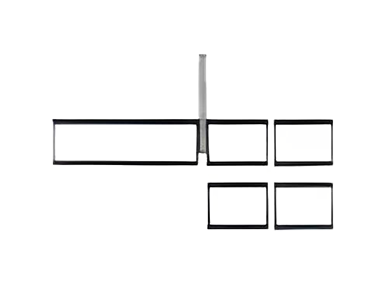
Material Cutting
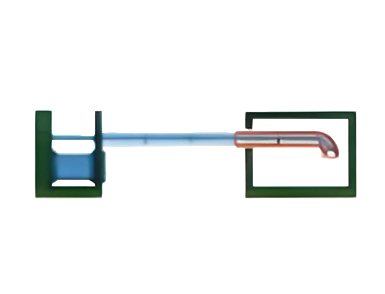
Medium Frequency Heat Forming
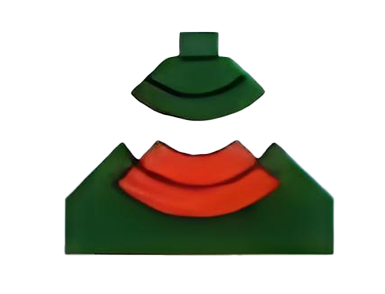
Calibration

Heat Treatment

Final Processing
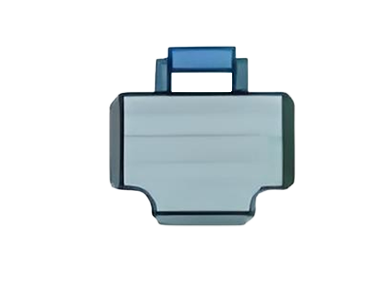
Non-destructive Testing

Surface Treatment
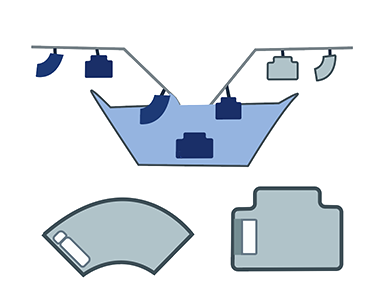
Coating and Marking
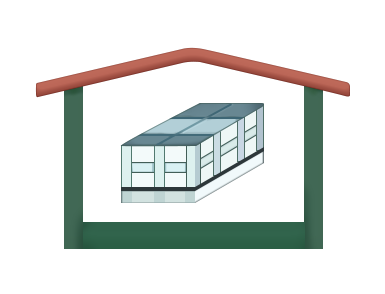
Packaging and Delivery













